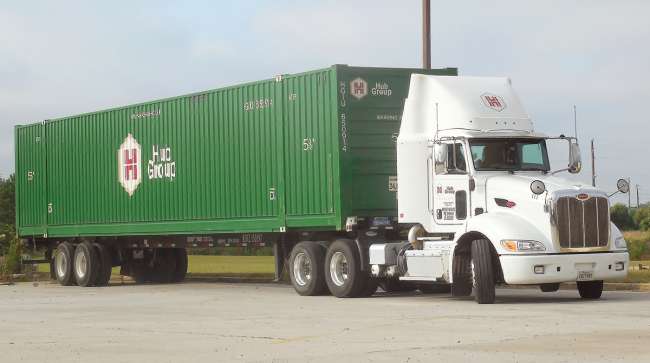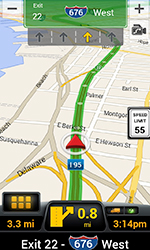Senior Reporter
Exemption Requests Increase as ELD Enforcement Date Nears

Several organizations are seeking exemptions from having to install electronic logging devices by Dec. 18, as federally mandated.
YOUR GUIDE TO THE MANDATE: Downloadable PDF.
The requests, recently announced by the Federal Motor Carrier Safety Administration, seek delays ranging from two to five years. FMCSA said it would accept public comments for 30 days after the request is published in the Federal Register.

• The Motion Picture Association of America asked for a five-year exemption from the ELD requirements for all commercial motor vehicle drivers providing transportation to or from a theatrical, television or motion picture production site.
If granted, the exemption would allow the association’s drivers to complete paper records of duty status, according to the announcement.
MPAA said that approximately 6,500 commercial motor vehicle drivers operate on a full- or part-time basis for the industry.
According to hours-of-service data developed by third-party compliance services, these drivers spend on average less than four hours each day driving and drive about 40 miles per day, the announcement said.
“Their resulting RODs [record of duty] are often very complex, as are the driver hours-of-service records that employing motor carriers must keep,” it said. “Through close cooperation, the industry has been able to manage the extensive interchange of paper RODs that this work pattern requires. MPAA asserts that industry’s success in HOS management is based on a system that is driver-based rather than vehicle-based.”
MPAA said that the lack of interoperability among ELD platforms developed by various manufacturers means that motion picture company drivers will not be able to transfer hours-of-service data from one carrier or vehicle to other carriers or vehicles.

ALK Technologies Inc
A driver who is required to use an ELD may operate a commercial motor vehicle that has one operating system installed on the truck, the announcement said.
“When the driver transfers to operating for another studio or production company, that company may use a different ELD operating system for its vehicles. The HOS data cannot automatically be transferred from the first company’s vehicle to the second company’s system unless both ELD devices are on the same platform,” according to the announcement.
The Federal Register announced the request Oct. 27.
• The Western Equipment Dealers Association also requested an exemption of five years on behalf of approximately 6,000 farm, industrial and outdoor power equipment dealers in North America.
Western Equipment Dealers Association members from the agriculture sector said equipment dealers play a key role in selling and servicing equipment for farmers and ranchers, as they transport machinery to and from farms and between dealerships.
“They partner with agricultural producers to increase productivity through the training and use of new equipment technologies. Complying with the ELD requirement will be unduly burdensome for equipment dealers and their customers — farmers and ranchers, without providing the sought-after safety advancements contemplated by the rule,” said the announcement Oct. 26.
The request is for the Northeast Equipment Dealers Association, North Dakota Implement Dealers Association, Midwest-South Eastern Equipment Dealers Association, Far West Equipment Dealers Association, Deep South Equipment Dealers Association, Equipment Dealers Association and the United Equipment Dealers Association.
“Equipment dealers also employ service trucks that drive to farms and ranches to work on customer’s equipment and deliver parts to the customer’s location,” the association said.
The vehicles typically operate within a confined distance from the dealership of less than 150 miles.
With a legislative solution iffy, @NPPC has applied with @FMCSA for an #ELD exemption for livestock haulers. https://t.co/j3zPkQfSVe — TransComply (@TransComply) October 30, 2017
• The National Pork Producers Council on Oct. 30 asked federal regulators to exempt their trucks for two years on behalf of livestock haulers who will not be prepared to meet ELD deployment.
“Concern over the ELD mandate has exposed incompatibilities between the hours-of-service rules and the livestock industry, and is causing disruption for livestock haulers, increasing already severe driver shortages and endangering the health and welfare of the millions of animals transported by livestock carriers daily,” the announcement said.
The council’s filing was for the American Beekeeping Federation, American Farm Bureau Federation, Livestock Marketing Association, National Aquaculture Association, National Cattleman’s Beef Association, North American Meat Institute and the U.S. Cattlemen’s Association.
The council identifies the haulers as those carrying livestock, poultry, aquaculture and insect producers, processors and transporters.
“There are approximately 600,000 pigs transported every day on U.S. roads,” the council said. “The proper handling and transport of cattle reduces sickness, prevents bruising, and improves the quality of the meat.”
The drivers also transport live fish, which requires a driver to focus on road safety, equipment maintenance, fish health and water quality. Moving live fish by truck also requires specialized equipment, species-specific loading and on-time delivery, the council said.
• Hub Group Trucking requested that FMCSA allow it to have an alternative grandfather period for any commercial motor vehicles added to its fleet after the Dec. 18 compliance date.
All 2,700 of its trucks are equipped with automatic onboard recording devices, the carrier said Oct. 30, adding that it expects to add at least 160 trucks in 2018.
“If the exemption is granted it would allow HGT to equip the additional trucks with AOBRDs instead of the required ELDs until the company’s full transition to ELDs can be accomplished,” said the announcement. “HGT is confident of its AOBRD-compliant approach between Dec. 18, 2017 and its full transition to ELDs by the end of 2018.”
Hub Group ranks No. 8 on The Transport Topics Top 100 list of the largest for-hire carriers in North America.




